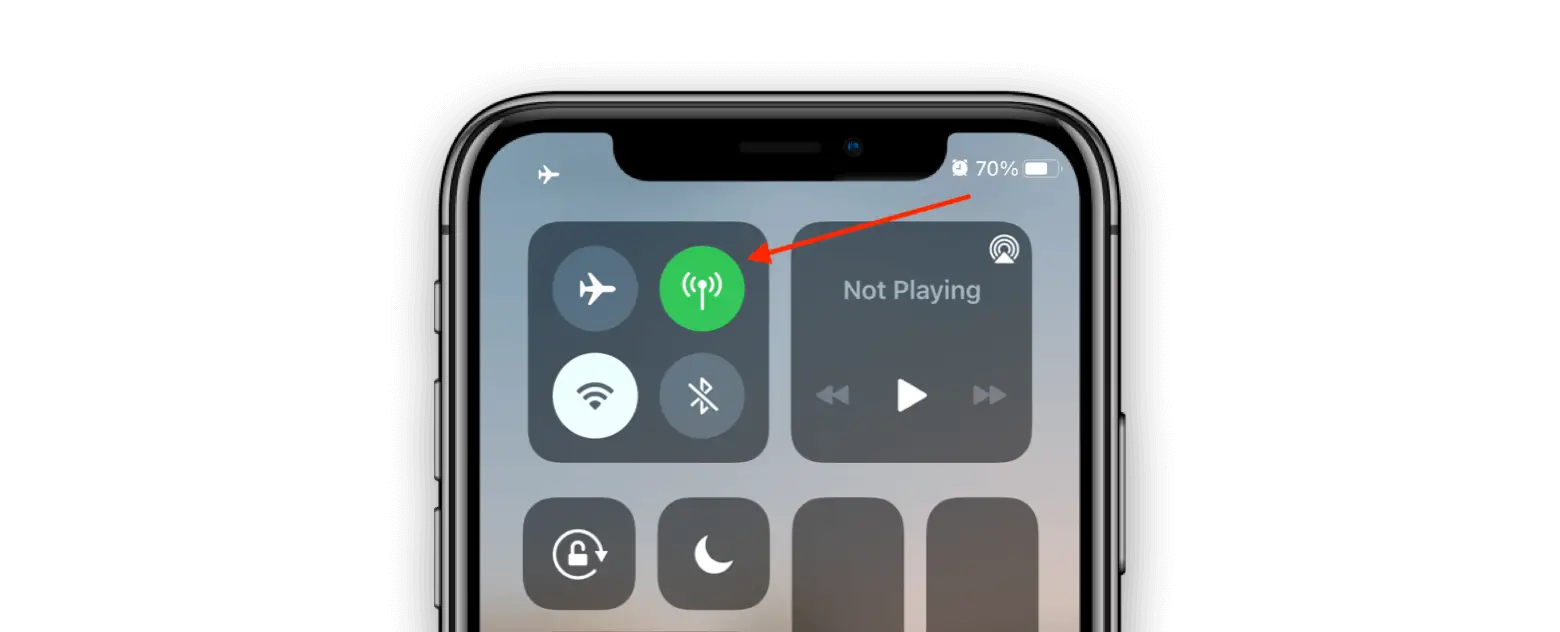Does Turning Off Cellular Data Stop Phone Calls?
 Drashco
Drashco
In our hyper-connected world, the ability to make phone calls is essential for communication. However, there may be situations where you need to turn off your cellular data due to various reasons like conserving battery life, avoiding data overages, or to avoid roaming charges during international travel.
The big question that arises is, "does turning off cellular data stop phone calls?". In this post, I'll take a deep dive into and explore various scenarios to provide you with the necessary insights.
So let's dive right in.
If Cellular Data is Turned Off, Can I Still Call?
The short answer is yes! Turning off cellular data on your smartphone does not prevent you from making or receiving phone calls. The basic phone functionality, including voice calls and SMS, relies on a different technology called the cellular network, commonly known as 2G, 3G, 4G, or 5G depending on your device and network coverage.
While your phone requires cellular data for internet-based services like browsing, email, and app usage, voice calls operate over a separate channel that does not depend on data connectivity. So, even with cellular data disabled, you can still dial numbers, answer incoming calls, and exchange messages through traditional texting.
See also: Official Mobile Internet Connectivity Report [by GSM Association]
How Voice Calls Work Without Cellular Data
When you place a voice call, your smartphone communicates with nearby cellular towers to establish a connection. The cellular tower routes your call to the intended recipient's phone through the cellular network.
The process involves voice codecs that convert your speech into digital data, which is transmitted over the voice channel. Since this process is separate from data services, you can continue to make and receive calls without active cellular data.
See also: What does 'SIM not provisioned for voice' mean and how to fix it?
The Role of Wi-Fi Calling
Although turning off cellular data does not affect regular voice calls, you can enhance your calling capabilities using Wi-Fi calling. Wi-Fi calling allows your smartphone to use an available Wi-Fi network to place and receive calls. This feature is especially useful when you have limited or no cellular network coverage but have access to a stable Wi-Fi connection.
To enable Wi-Fi calling, you must have a compatible device and ensure that the feature is supported by your carrier. Once enabled, your smartphone will automatically switch to Wi-Fi calling when connected to a Wi-Fi network, and you're in an area with weak or no cellular signal.
Using Third-Party Apps for Calls
In addition to regular voice calls and Wi-Fi calling, several third-party apps offer voice calling services over the internet. These apps use Voice over Internet Protocol (VoIP) technology to enable voice communication. Popular examples include Skype, WhatsApp, FaceTime, Google Duo, and Facebook Messenger.
With these apps, you can place calls to other users of the same app for free, even without cellular data. However, when calling landline or mobile numbers outside the app, you might need an active internet connection to establish the call. It's essential to understand the app's specific requirements and data usage policies.
Exploring Airplane Mode and Calls
Airplane mode is a handy feature that disables all wireless communications on your device, including cellular, Wi-Fi, and Bluetooth. While it may seem like turning on airplane mode will prevent you from making calls, there's a workaround to enable calls even in this mode.
After turning on airplane mode, you can manually reactivate Wi-Fi and/or Bluetooth. By connecting to a Wi-Fi network, you can use Wi-Fi calling, as mentioned earlier, to make calls while in airplane mode. Keep in mind that this method requires you to have access to a Wi-Fi network.
Emergency Calls
It's crucial to note that even if your phone is not connected to any cellular network and you don't have a data plan, you can still make emergency calls. Emergency calls are handled differently and are prioritized on any available cellular network, even if you don't have an active plan or SIM card. This feature ensures that you can always reach emergency services in critical situations.
Frequently Asked Questions (FAQs)
Can I make international calls with cellular data turned off? Yes, you can make international calls with cellular data turned off using either regular voice calls or Wi-Fi calling, depending on your phone's capabilities and available network.
Will turning off cellular data save battery life? Yes, turning off cellular data can help conserve battery life, as data-intensive tasks won't run in the background. However, regular voice calls consume minimal battery compared to data usage.
Can I send SMS or text messages with cellular data disabled? Yes, you can still send and receive SMS or text messages without cellular data. Text messages operate on a different network protocol that doesn't require data connectivity.
Does turning off cellular data affect internet-based messaging apps? Yes, internet-based messaging apps like WhatsApp and Facebook Messenger require active data connectivity. If you turn off cellular data, these apps will not work until you connect to Wi-Fi.
Can I receive calls while using mobile data for other purposes? Yes, you can receive calls even if you are using mobile data for other purposes. Voice calls and data usage are separate functions that can work simultaneously.
Will airplane mode disable all calling features? While airplane mode disables regular voice calls, you can still enable Wi-Fi calling by manually activating Wi-Fi after turning on airplane mode.
Conclusion
In conclusion, you can rest assured that even if cellular data is turned off, you can still make and receive calls using traditional voice calling technology. Additionally, you can leverage Wi-Fi calling and third-party apps for internet-based voice communication. It's essential to understand the different calling options available to you and the scenarios in which they work best.
Remember that while cellular data is crucial for internet-based services, it does not hinder your ability to stay connected through voice calls and SMS. Moreover, for emergencies, you can always place an emergency call, regardless of your data connection status.
So, the next time you find yourself in a situation where you need to conserve data or have no access to a data network, be assured that making calls is still possible with or without Wi-Fi. Stay connected, stay informed, and explore the multitude of communication options available at your fingertips.


